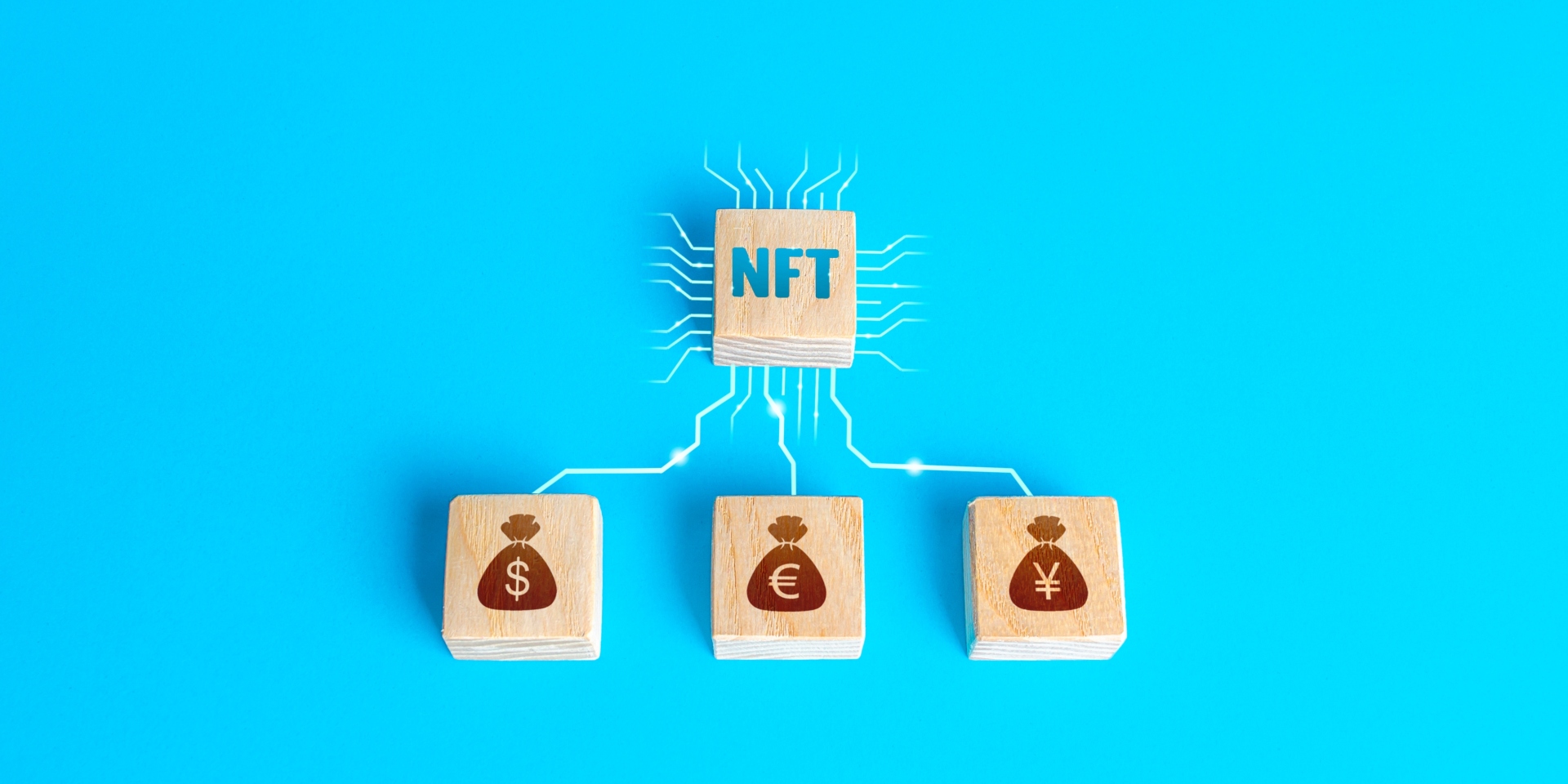
Digital Assets; Is the NFT Trend Worth It?
Digital Assets: Is the NFT Trend Worth It?
In face of the NFT rise, there is a series of questions we might ask ourselves: is it safe to buy/own them? The first answer you may give to those questions is that initially, NFTs are based on the blockchain technology, which guarantees the authenticity and validity of the acquired digital work.

NFTs, or non fungible tokens, exist since a couple years ago they came out as a means to certificate digital work ownership. Just like that many new digital artists came to light, which ended up becoming the so-called "New Age of Digital Art". Among those artists, an outstanding digital artist is “Beeple”, whose real name is Mike Winkelmann, a graphic designer from the USA who we can call the Pablo Picasso of his time.
He started his project on the 1st of May of 2007 called “The First 5000 Days by Beeple”. This project consists on the artist creating from that date an NFT work each day, investing three hours each day to that end, until completing his project throughout five thousand days. The price the artist started selling each NFT for was just one dollar, until on the 11th of March of 2021 when the artist auctioned an NFT called “Beeple´s Everydays”. It was conferred in the popular auction house Christie´s by 69.300.000$, becoming the most expensive NFT up to that date.
We have all seen how during these last years this new form of art has been becoming stronger and has turned into a trend within the world of cryptoassets. In addition, it is becoming an attractive non-financial investment for many investors, thanks to the rise of metaverses and their relationship with NFTs.
But, given this boom of NFTs, there is a series of questions we should think about, is it save to buy and/or own them? The first answer that can be given to thi question is that initially, NFTs are based on blockchain technologies, which guarantee the authenticity and validity of the acquired digital works.
However, there are many legal loopholes regarding NFT security. For example, in Spain, currently there is no specific regulation for these unique digital assets. On the other hand, the European Union is working on that. There is the example of the MiCA proposal (markets in crypto-assets), that is how the European regulation draft regarding cryptoassets markets is known as, through which the European Union intends to create a common regulatory framework to provide this digital and financial revolution with law security. However, at the end of 2021, it has been possible to find out that the application of the MíCA Regulation will not become effective until 2024, leaving a temporary legal loophole that, unless the Member states such as Spain decide to cover it with their own state laws, it seems like it will still predominate.
Currently, there are regulators such as Japan's financial regulator, the Finalcial Services Agency (FSA), which already has new policy documents to start supervising NFTs and Initial Exchange Offering (IEO). However, these regulations that arise have a common problem, that is the blockchain's very own performance, since it is a decentralized system and therefore there is no central authority.
Therefore, NFT security is not defined nor specifically regulated as such, that way, in case there is a controversy between two parties, they must reach out in many cases to arbitration to solve it.
Initially, NFTs are based on the blockchain technology which guarantees the authenticity and validity of the acquired digital work
Regarding NFT taxation, it is more developed, given the zeal for raising funds is a priority for legislators. In the case of Spain, we can find the recent Act 11/2021 containing measures for preventing and fighting against tax evation from July 2021, which has implemented the obligation of providing information on the balance virtual currency owners keep. That way, since the payment method used for purchasing NFT are cryptocurrencies such as Ethereum, companies that manage NFT purchasing and selling must report to the Tax Office the different balances, addresses, tax identifications, operation dates and identities of their owners.
Likewise, if an NFT is sold in Spain among legal persons, paying in euros, the corresponding VAT must also be paid, which would range from 10%, if it is sold by the author itself, to 21% if it is resold by a legal person. In addition, if there is some capital gain, the legal person must pay the corresponding taxes through the corporate tax.
As for selling between private individuals, these are taxed with the property transfer tax and as long as there is some capital gain it is subject to the Personal Income Tax (PIT).

Stealing NFT
Going back to owning NFTs and their security, we would like to highlight one of the last thefts of NFTs, which took place on the 30th of December of 2021. The victim, a cryptoart collector from New York called Toddkramer, had 16 digital avatars stolen. Their approximative value was 600 ethers (Ethereum cryptocurrency) whose equivalent was over 2.2 million euros. Digital avatars belong to the collections “Bored Ape, Mutant Ape Yacht Club and Cloonex”.
According to the version explained by Toddkramer himself in Twitter, the works were stolen through a phishing attack. That way, the victim interacted with a false website, believing it was an authentic one, and the intruders managed to steal his identity and gained access to his “hot wallet”, which is a digital wallet that stays connected to the Internet permanently and to the blockchain network. The goal of these wallets is to allow users to carry out their transactions with their cryptoassets fast and easily.
The victim himself, Toddkramer, recognized later that he should have used a “hard wallet”. Those are physical wallets, like an USB and are not connectet to the Internet until they are connected to a computer, in addition you must manually verify each transaction you do with them.
If you wish to invest in NFT, first delve into everything that surrounds these digital assets, calculate the risks and always invest an amount of money you are willing to lose
However, the funny thing about this theft is that when the victim shared his experience with Twitter users, they started making fun of him and finally Toddkramer decided to delete the tweets where he explained what happened to him. Many users blamed the victim, saying that it was his fault that one of the most popular NFT markets, OpenSea, had stopped selling those avatars. According to those users, the victim should assume the responsibility of not being careful enough and that the intervention of OpenSea freezing NFT sale was against the blockchain decentralized nature.
Therefore, we can see that the world of NTFs is a complex one, with many legal loopholes and totally opposite opinions. In addition, we should highlight that blockchain technology is not all plain sailing, although it is true that blockchains register ownership changes, that by no means implies we may be able to find out the identity of the intruder.
So, in the end we see that at least in Spain, if there is an ilegal action related to NFT, you may claim the article 197 of the criminal code (crime of uncovering and revealing secrets) or the article 234 of the criminal code (profit-seeking theft of individual property), but there is a problem we face and that is the digital nature of NFTs and their theft through the Internet. This issue has not been solved yet by Spanish courts and it will entail additional complexity for those affected.
Analyze the risks of NFT
It is important for investors that wish to invest in NFT to analyze the current situation of these digital assets, from legal, security and profit perspectives.
As for us, we think that NFTs have strenghened their stance as a non-financial investment and they can be highly profitable in the short term, but always implying a high risk that investors must assume. Together with this risk there is also the current security situation they have, the lack of a legal framework that protects the owners of these digital assets and, last but not least, the "wide ranging" community that surrounds NFT.
That is why we believe that if you wish to invest in NFT, it is advisable to study everything that surrounds these digital assets in depth, calculate the risks and always invest an amount of money you are willing to lose.
These might interest you...





